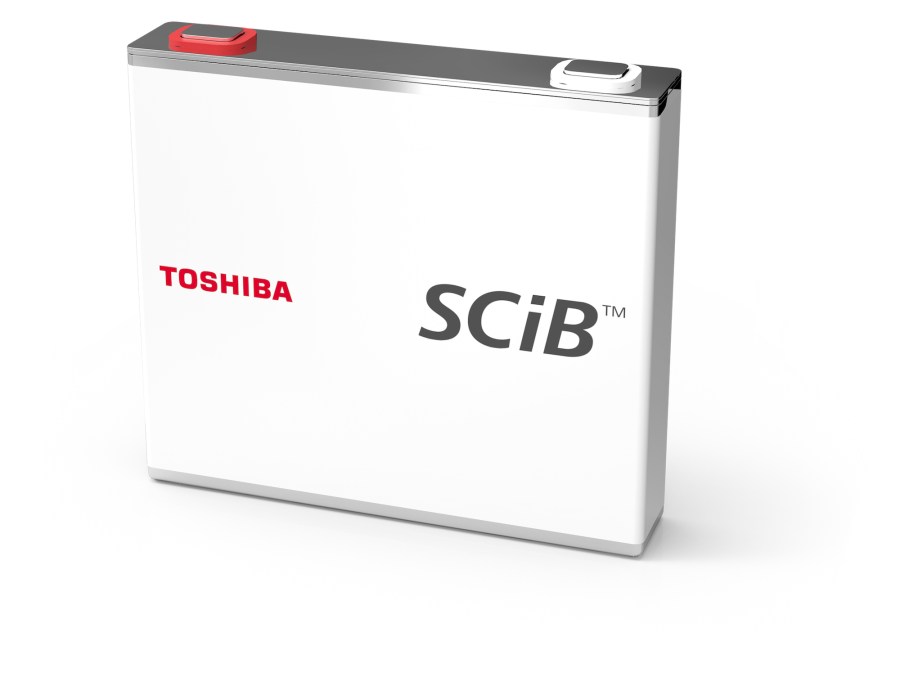Rechargeable battery technology from Toshiba will fit a wide variety of applications, says Toshiba.
For example, the lithium-ion cell’s high energy and power makes it ideal for future electric trucks.
The technology says that its 20Ah-HP SCiB overcomes the problem of having either one or the other in current products.
In an EV, a high-energy battery allows the vehicle to drive further on a single charge.
However, it lowers power input and output and extends charge times.
Therefore, Toshiba drew on its know-how in current high-energy and high-power products to combine the advantages of both.
The cell is ideal for heavy-load applications where high power input and output are essential.
In addition, it is well suited to situations where battery cells must suppress heat and operate continuously.
For example, rapid charging of commercial vehicles, or regenerative power systems for rolling stock.
Importantly, the battery technology enables the cell to be the same size as Toshiba’s current 20Ah product.
As a result, current customers can easily upgrade to the improved input and output power with the same module pack.
Battery technology benefits
There are a number of key advantages of the new battery technology over existing products.
Firstly, it offers excellent heat suppression.
Compared to Toshiba’s current 20Ah cell, the new 20Ah-HP cell delivers 1.7x higher input and 1.6x higher output.
In addition, there is a reduction of around 40% in resistance in the cell.
Secondly, the cell offers long life advantages.
The new 20Ah-HP cell achieves a longer life than the current 20Ah cell by suppressing heat during continuous charging and discharging.
This scenario is possible due to its lower internal resistance.
Finally, there are compatibility advantages with the 20Ah-HP from Toshiba.
Specifically, it delivers improved input and output power but maintains the same size as the current 20Ah cell.
Therefore, it allows current customers to easily upgrade to the improved performance with the same module pack.
New battery technology could revolutionise commercial vehicle segment






